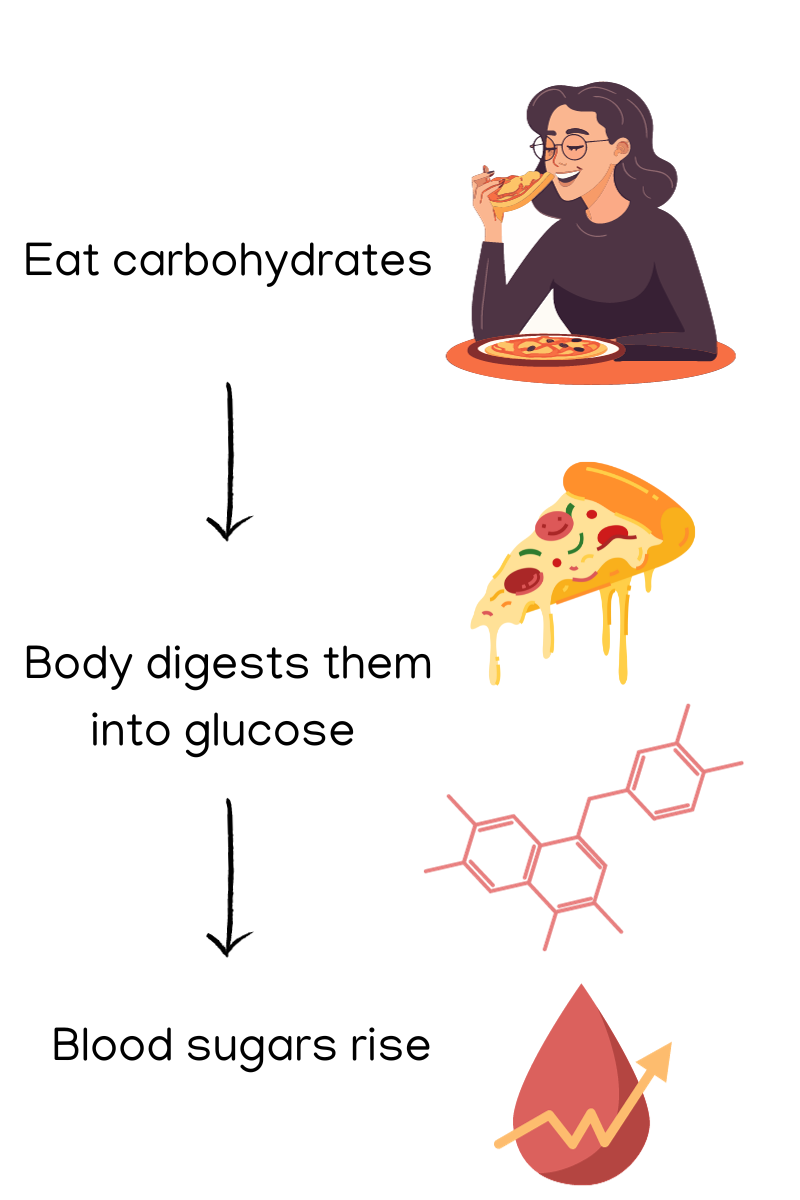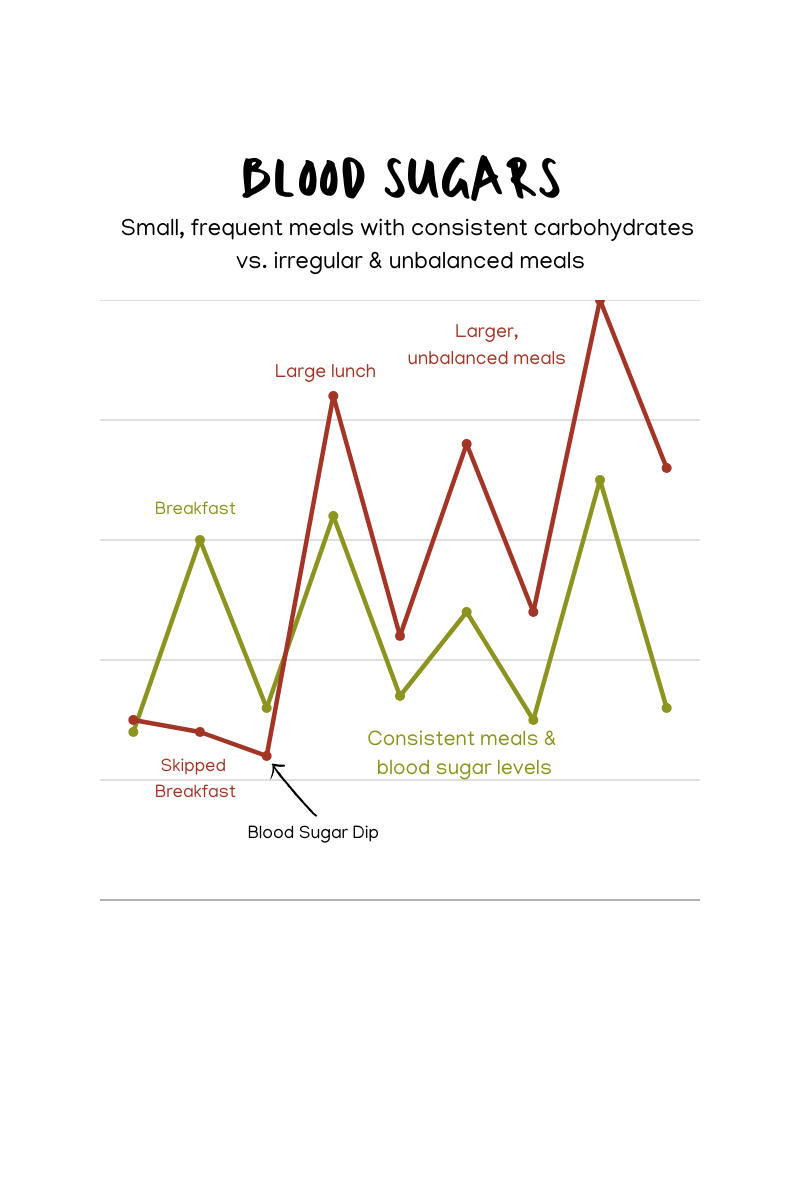Why is Managing Blood Sugars Important to My Health?
Blood sugar is also known as blood glucose. Glucose is a type of sugar and is our body’s primary source of energy to feed our cells and brain. Glucose comes from the foods we eat, especially carbohydrates such as grains, breads, fruits, starchy vegetables, and sweeteners. Dietary and lifestyle changes are important for managing blood sugars.
What raises blood sugar levels?
When we eat foods containing carbohydrates, our body digests the food down into glucose molecules. From there, the glucose gets absorbed into our bloodstream and our blood sugar levels rise. Protein and fats do not raise our blood sugar. When we are eating a low-carbohydrate diet, the body can create glucose molecules from non-carbohydrate sources stored in the body to provide energy.
When our body detects that our blood sugars have risen, it produces a hormone called insulin to take the glucose out of the bloodstream and into the cell. Once in the cell, the body uses any glucose needed for immediate energy and stores any additional glucose in our muscles and liver for later use. If there is more than needed for storage in those areas, the remaining glucose is stored as fat. So, if you are eating more carbohydrates than you are burning for energy and physical activity, they will be turned into fat.
Why is balancing blood sugar important?
The balance of blood sugar and insulin levels is beneficial for many reasons. It helps stabilize hunger and mood, improves sleep, and helps with balancing hormones. Keeping blood sugars in balance is also an effective way to maintain a healthy weight. Large fluctuations in blood sugars can impact energy levels. You can thank your blood sugar levels for the fatigue and sugar cravings during the afternoon slump.
Conditions like diabetes and insulin resistance affect the body's ability to regulate blood sugar effectively. People with diabetes need medications to help control their blood sugar levels. Uncontrolled blood sugars can lead to damage to multiple organs and body systems including the brain, eyes, heart, and kidneys.
How to balance blood sugars naturally:
Eat a balanced diet for stable blood sugar. Focus on having protein, fat, fiber, and a carbohydrate source at each meal. When possible, choose whole grains or fibrous carbohydrates such as fruit or starchy vegetables.
Try to eat consistent portion sizes throughout the day to prevent large spikes and dips in blood glucose levels.
Eat regularly. Try to avoid skipping meals and snacks followed by grazing. Eating a regular meal + snack schedule will help keep blood sugars consistent and can help prevent over-eating due to severe hunger.
Exercise regularly. Include aerobic exercise and strength training. Both are important in lowering blood sugars and help your body use glucose effectively.
Manage your stress levels. Stress hormones can increase blood sugar levels.
Try to get 7-9 hours of quality sleep per night. Inadequate sleep can disrupt blood sugar levels.
Making lifestyle adjustments that you can be consistent with is important for managing blood sugar levels. Individuals can improve their overall wellness by adopting balanced eating habits, staying physically active, lowering stress, and getting adequate sleep. If you are a diabetic or pre-diabetic, it is important to take any medications as prescribed and consult with your healthcare team regularly.
If you need support in making sustainable lifestyle changes or finding foods that lower your blood sugar levels that fit within your schedule, culture, and values, I'm here to help.






